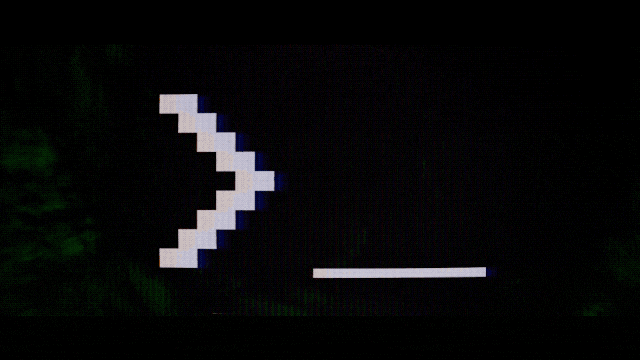How text adventure game artists used 'software in your head' to create vivid immersive worlds
Watch an episode of our new series The Artists and find out the history of the pioneers behind the pixels

Since their earliest beginnings, video games have pushed the visual capabilities of computers, but early text adventure games like Zork pushed boundaries using nothing but words on a screen. Zork was a cultural phenomenon, growing out of the minds of four friends at MIT to conquer the world and create — for about a decade — a best-selling genre of interactive fiction and a legion of dedicated fans.
Watch a clip:
Watch the full episode now.
The first few sentences of Zork I — 'You're in a field west of a white house. There is a mailbox here.' — you know, just the sparsest description, and yet people have such vivid mental images.- Steve Meretzky, co-creator of The Hitchiker's Guide to the Galaxy (text adventure game)

It all starts with an Adventure. In the late 70s, the first real text-based game, Colossal Cave Adventure, was burning up the very limited interconnected networks of ARPANET, which was the precursor to the internet. Particularly enamoured with the game were Dave Lebling and Marc Blank, part of the Dynamic Modelling Group at MIT, who were exploring very early implementations of artificial intelligence.

We were inventing a new artform. I wonder what it felt like to be in Elizabethan London with the explosion of the theatre. Are we the Shakespeares of the 20th Century?- Michael Dornbrook, VP marketing of Infocom
After finally completing Colossal Cave Adventure and its myriad of puzzles, Lebling and Blank set out to create their own story using the same techniques, but this time much bigger and more immersive. After many iterations of Zork that were first unofficially released on the ARPANET in 1977 and subsequent revisions (kids were breaking into the then-unsecured network just to play the unknown game), it was finally completed in 1979. After initial distribution trouble, the brain trust behind Zork decided to get into the publishing world, founding the company Infocom and releasing the game right before the holiday season.

I can write something in a paragraph that would take a really skilled graphics [person] and animator and lots of power to do. And you, because you have even better software in your head, can read that paragraph and you can say…oh yeah!- Dave Lebling, Co-creator, Zork, Co-Founder Infocom
To say Zork was a hit is quite an understatement. The relatively simple interface of text-based gaming meant that it could run on pretty much any computer with a keyboard. Zork went on to sell over a million copies — completely unheard of at the time. Infocom quickly became a text-based gaming powerhouse. By 1983, during the year of the console collapse, Infocom was the most dominant computer game company, with 10 of their games on a list of the top 40 best selling PC games of the year. And unlike their graphic counterparts, text-based games enjoyed a very healthy shelf life, much like books.
No one ever played an Atari game and felt like, 'I'm there right now,' but when you played a text adventure like Zork you felt like you were there! You were transported. You were immersed in this deeper world.- Jon-Paul Dyson, video game historian
As the graphical power of home computers increased exponentially throughout the mid-80s, text-based games lost their lustre, and by 1986 Infocom was bleeding cash. They were bought by young upstart Activision for $7.5 million and released a few more highly regarded games which didn't make much of a dent sales-wise. By 1989, Activision shuttered the company — but the passionate user base that grew up with the games have never left the world that Zork created and still discuss the lore and mythology to this day. Zork left its mark in storytelling and interactive fiction, laying the groundwork for the immersive stories in today's games.
Watch all ten episodes of The Artists now, a new CBC Arts series about the video game designers who changed the world.
